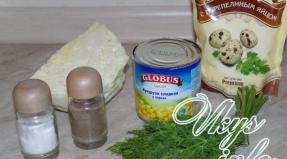Why is black pepper useful and can it be consumed by everyone? Useful properties of black peppercorns, as well as treatment with the fruits of this plant
In contact with
classmates
An evergreen liana (Piper nigrum L.) grows in the tropics of India. Dried unripe fruits of it - this is the well-known spice "black pepper". The best peppers are hard, dark, heavy. Black peppercorns are stored for a very long time. But ground pepper can be stored for no more than three months (the aroma is lost), so it is better to grind it yourself as the need arises.
In addition to its culinary benefits, black pepper also has medicinal properties. The chemical composition of black pepper is still poorly understood. The hot taste of pepper is determined by the glycoside piperine. It also contains vitamins E, C, starch, essential oil.
For which organs is the benefit of black pepper undeniable?
- First, for the digestive system. Pepper helps the stomach to digest food, as it promotes the release of hydrochloric acid. It improves the functioning of the intestines, helps to get rid of toxins and intestinal gases. It is an antimicrobial agent, cleanses the body of worms. Black pepper accelerates the absorption of nutrients from food and medicines. Piperine enhances the penetration of amino acids through the intestinal wall into the bloodstream, increasing the absorption of food as it passes through the intestine. Ayurveda recommends taking three black peppercorns a day after meals for two to three weeks every year to cleanse the gastrointestinal tract. For those who dream of losing weight, the information that black pepper has a destructive effect on fat cells will be interesting.
- Secondly, for the cardiovascular system. Black pepper has long been known for its benefits in reducing the risk of heart disease. Black pepper helps to thin the blood, cleanses the blood vessels, including the vessels of the brain. The load on the heart decreases, which means that the likelihood of heart attack and stroke decreases.
- Thirdly, it cleans the respiratory organs very well, reduces the formation of mucus and removes it. Together with honey, it is used as an expectorant.
Pepper's antioxidants help prevent cancer, cardiovascular disease, and liver disease.
The ancients said that black pepper enhances the digestive properties of the stomach, increases the energy of the nervous system, and helps to strengthen the muscles.
As you can see, the benefits of black pepper are great. By using pepper in cooking, we strengthen our health.
But harm of black pepper for the body, too, can not be discounted. The thing is that one-sided knowledge about the use of black pepper can lead to its use in large quantities, and in this case, the harm to health is obvious for those who like to understand everything to the end, learning about all the known aspects.
Black pepper is a hot seasoning and in any case serves as an irritant to the gastric mucosa. Even a completely healthy person can have unpleasant sensations in the digestive tract after consuming this seasoning.
The harm of black pepper for those with gastritis or ulcers may even be critical. The fact is that with the use of pepper and the subsequent irritation of the mucous membrane of the digestive tract and stomach, there is a high probability of bleeding, and the consequences of such a reaction can be difficult to predict.
The harm of black pepper is a topic about which very, very little has been said, however, it is known that this seasoning in some cases can have negative effects on the reproductive system, which, you see, is extremely unpleasant. The most unpleasant thing in this situation is that the cause is sometimes very difficult to find, and while a person finds out that it is black pepper that is the culprit for the "malfunction", a lot of time passes and the consumption of black pepper continues. This, of course, cannot but aggravate the already existing poor health.
In order to minimize the harm from eating black pepper, you must adhere to the rule of measure. This seasoning should not be consumed in excessive quantities. In no case should you talk about the benefits of black pepper and not mention its negative properties. Since many people can draw the wrong conclusions and come to the conclusion that the use of black pepper is absolutely safe and you can pour it into your pan in any quantity. I would like to hope that after all, the majority will study the issue thoroughly and decide for themselves whether or not it is worth adding black pepper to food.
Black pepper is a well-known spice that is added to many dishes to improve the taste. It is the fruit of a shrub that belongs to the Pepper family. The homeland of the plant is India. These fruits are specially dried in the sun. Due to this, the skin begins to wrinkled and has a black or black-brown color. Its shape is round. It is added to dishes with whole peas, as well as ground. Ground pepper has a brighter and richer aroma. It has not only nutritional value, but also medicinal value. What are the beneficial properties of this product?
Benefits of ground black pepper:
It is rich in manganese, iron, copper, vitamin K, fiber. The advantage of this product is that it does not contain calories. The consumption of ground black pepper improves the digestion process. This product is an anti-cancer agent. Eating it affects the nervous system, strengthening it. Black pepper is used to cleanse blood vessels. This reduces the likelihood of a stroke or heart attack. A combination of honey with black peppercorns has an expectorant effect. It can also be used to heal wounds. To do this, you can simply sprinkle pepper on the site of the lesion. This will stop the blood flow and have antimicrobial effects. This seasoning is also used as a remedy for problems such as heartburn and indigestion. By using this product in food, you can improve the absorption of vitamins and minerals. This seasoning has a positive effect on the functioning of the liver, it removes toxic substances from the body. Black pepper can be used as a pain reliever, diaphoretic, and diuretic. It can be used to cleanse the respiratory system. It prevents the formation of mucus in the airways. Black pepper is used to combat worms. The use of this product contributes to the restoration of the pancreas. It is advisable to add seasoning to food to eliminate stress, depression, chronic indigestion. Indications for use are also colds, fever, high temperature. It leads to the stimulation of metabolism. Ground black pepper also helps with obesity. Due to its ability to destroy fat cells. He puts in order the work of the endocrine system. Pepper is also effective for stimulating appetite, lowering blood pressure.
Harm from ground black pepper:
This product should not be eaten by persons who have individual intolerance. Black pepper is not desirable for diseases such as stomach ulcers, gastritis. This is due to the fact that such patients may have bleeding. Contraindications also include inflammation of the kidneys and bladder. It is necessary to observe the measure in the use of the seasoning, since it acts as an irritant to the gastric mucosa.
It is famous for its qualities. Each has its own advantages. In particular, black ground pepper is necessary for the prevention of heart disease, as it makes the blood thinner, and also clears blood vessels.
Ground black pepper is a dried and grated vine berry.
Let's start with the most important question - what kind of pepper is it that makes our food tastier, but at the same time a person starts sneezing from it?
This plant is a liana, the berries of which are dried, and then ground into fine dust. Black pepper is brought from India, and the territory where it was first grown was called “the land of pepper”.
Liana, which reaches 15 meters in length, grows on the coastal strip, and is also very popular with those who love spicy food. The highlight of this fruit is that it is dried.
All useful substances are collected just in the fruit, and when the pepper is processed, they are preserved (vitamins, various trace elements, as well as essential oils). These elements are found in both pepper powder and peas.
What's in a Pepper Vine Fruit?
The first Europeans who saw this fruit were very surprised at its qualities. This was the army of Alexander the Great.
They believed that pepper has miraculous properties, they thought that it carries healing power, and therefore they generously poured it into. Ancient Greece, along with Rome, also acquired the spice in India. And for one period it was equal in price to the weight of gold.
In Russia, it was added to various pastries (gingerbread, as well as cookies). Today this spice is grown on special plantations.
How ground black pepper is mined

Ground white pepper is made from fully ripe creeper fruits.
Everyone knows that there are several types of pepper (black, white, as well as pink and red). However, red pepper is not a plant.
This product comes from red chilli peppers, which are dried and then ground into powder.
Other varieties of pepper can be removed from Piperaceae creepers. The color of the final product will be different - depending on at what stage of ripening it was ripped off.
In particular, black pepper is taken from unripe berries, which are chopped and then ground. Pink is almost a ripe fruit, but white is fully ripe, which must be soaked in water, separated from the peel, dried, and then grind.
To get the pepper, you must go through the entire processing procedure. The essential oil in the pepper gives it a specific smell, and a nitrogen-containing substance called piperine gives it a bitter taste. The fruits contain vitamin C, as well as mineral salts, resin, starch.
At the moment, it is difficult to find a hostess who would not use pepper in the kitchen. It is added to various dishes - meat, as well as salads and side dishes.
There are also medicinal recipes that also include this product.
Which organs work best from pepper?

Ground pepper is good for all digestive organs.
First, pepper is good for everyone. It promotes the rapid digestion of food, since it produces hydrochloric acid. Coordinates the functioning of the intestines, as it removes toxins and intestinal gases.
Acts as an antimicrobial agent, removes worms from the body. It helps food to digest faster. Piperine allows amino acids to pass through the blood vessels, thereby allowing food to be absorbed faster.
Ayurveda advises to eat a few peas of pepper once a year for two or three weeks after eating, which will help the intestines work better. For those looking to lose weight, pepper can also be taken as it helps break down body fat.
Secondly, pepper is essential for the cardiovascular system. Everyone knows that it has a good effect on the work of the heart, thereby reducing the likelihood of heart disease. This pepper helps the blood become thinner, helps to cleanse the blood vessels, as well as the vessels in the brain. There is a decrease in the load on the heart, and this indicates that the risk of heart attack decreases.
Thirdly, pepper cleans the respiratory system, removes mucus. If pepper is mixed with honey and taken in this way, it will help to overcome coughs. Pepper antioxidants help prevent cancer, as well as cardiovascular disease and. The ancestors believed that black pepper helps to improve the functioning of the stomach, improves the state of the nervous system, and also helps to strengthen the muscles.
When there is high intracranial pressure, it is necessary to chew peppercorns with raisins, while spitting saliva for 10 minutes. These actions will help remove unnecessary phlegm from the body. It is worth doing this procedure for a month.
When a cold suffers, respiratory diseases have appeared, it is necessary to take ground black pepper together with honey (1 tablespoon of pepper, diluted in a glass of honey). This solution should be drunk 1 teaspoon 3-4 times a day. The same recipe is used for a diuretic effect, when swelling appears, heart disease develops.
According to Ayurveda, pepper drives the blood away faster, thereby improving the tone of the whole body. Since ancient times, this characteristic of pepper has been actively used by men to improve potency.
It is necessary to eat pepper for 7 days, which is mixed 1: 1 with sugar (0.5 teaspoon diluted in a glass of milk), and the result will be on the face. Although, some can boast of achievements after the first adoption.
When a man has serious problems (in particular, when the first stage of prostate adenoma develops), peppercorns are used together with ground, as well as dried and ground pomegranate peels.
The proportions are as follows: mix 1 part of pepper with 2 parts of nuts, as well as 2 parts of pomegranate. Drink with rosehip tincture mixed with honey, 1 teaspoon of solution before eating, 2 times a day for a month.

Black pepper along with raisins will help get rid of kidney stones.
To eliminate, such recipes are used: one pea of pepper is placed in raisins and eaten for 7 days. In this case, the stones will be crushed and excreted in the urine.
With the help of ground black pepper, skin diseases can also be cured. In particular, lichens go away after first smearing them with pepper and henna.
And vitiligo is treated with pepper mixed with peas, as well as soy flour, chicken lard - an excellent ointment comes out of this. It is rubbed with damaged skin for 40 days.
If there is joint disease, bone aches, paralysis, neuritis develops and muscle weakening is felt, make such an ointment: boil 1 tablespoon of black pepper powder in a glass for several minutes over low heat, then cool, strain and spread on the sick places.
When the hair falls out, pepper is again used. It is diluted with salt in equal proportions, as well as with onion juice, until a homogeneous thick mass appears. It is rubbed into the roots of the hair, and they walk with it for about 20-30 minutes, after which they wash their hair. With the help of this tool, hair growth is improved, and the bulbs are strengthened.
It is clear that pepper is very useful. Thanks to him, our body is strengthened.
Black pepper is one of the most common spices, which is sure to be found in the house of every housewife.
Description
Black pepper is a shrub plant from the Pepper family. The plant is native to the Malabar Islands in India, therefore it is often called the "Malabar berry".
The fruits of the tree are green peas, which darken during processing. Depending on the harvest time and production technology, red, green and white peppers are also obtained. All varieties of pepper are used in cooking, but black pepper is the most popular.
In nature, the shrub climbs up, winding around the trees. Since the pepper began to be cultivated, special poles have been installed for it on the plantations, limiting the growth of the plant to 4-5 meters. In general, a bush can reach a height of 15 meters. The leaves are up to 10 centimeters long. After flowering, the plant bears round fruits, which are initially green and then turn yellow or red.
The length of the brush is up to 14 centimeters, which can contain 20-30 drupes. To get black pepper, the fruits are harvested unripe, and already during drying under the sun they turn black and shriveled. The ripe fruits of the plant are soaked in water, the soft pericarp is removed and white pepper is obtained, which is not as hot as black, but more aromatic and also popular in cooking.
In India, black pepper has been cultivated since ancient times; it was well known in Ancient Egypt, China, Rome and Greece. In the Middle Ages, pepper was highly prized and widely used in European cuisine, despite its high cost. In those days, merchants from Venice and Genoa had a monopoly on supplies. After that, the Portuguese, and even later the Dutch, appropriated the right to supply pepper to Europe.
India, Brazil and Indonesia are the largest producers of pepper today. These countries grow more than 40 thousand tons of pepper annually. In addition, black pepper is grown in Sumatra, Sri Lanka, Java, Kalimantan and other countries with tropical climates.
The use of black pepper in cooking
Of all the spices, black pepper is the most widely known. In cooking, it is used in ground form, whole peppercorns, as well as in various spice mixtures. The properties of ground black pepper include a richer aroma, but it fizzles out quickly if not stored in an airtight container.
Pepper is added to almost all dishes - soups, gravies, sauces, minced meat, salads, marinades, sausages, legumes and vegetable dishes. It is also traditionally used in the preparation of all types of meat, game and fish, in cooking.
Composition and calorie content of black pepper
100 g of black pepper contains 12.5 g of water, 25.3 g of fiber, 10.4 g of proteins, 38.6 g of carbohydrates, 3.3 g of fat, 4.5 g of ash, vitamins: beta-carotene (A) , thiamine (B1), riboflavin (B2), niacin (PP), choline (B4), pantothenic acid (B5), pyridoxine (B6), folic acid (B9), ascorbic acid (C), tocopherol (E), phylloquinone (TO); macronutrients: phosphorus, sodium, magnesium, calcium, potassium; trace elements: fluorine, zinc, selenium, copper, manganese, iron.
The calorie content of black pepper is 250 kcal per 100 g of product.
The benefits of black pepper
The beneficial properties of black pepper were highly regarded in ancient times. For example, healers in ancient India used it to treat coughs, sore throats, flu, asthma, and as a pain reliever. And the ancient Greek doctors Hippocrates, Democritus and Pliny the Elder described the benefits of black pepper in their writings.
Black pepper has analgesic, anti-inflammatory, tonic, bactericidal, anthelmintic, expectorant and diuretic effects. It increases stress resistance and improves the functioning of the cardiovascular, digestive, endocrine and respiratory systems.

The pepper contains an alkaloid called capsaicin, which gives it a characteristic burning taste, and also stimulates metabolism, stimulates appetite, restores the work of the pancreas and stomach, thins the blood, preventing the formation of blood clots, and lowers blood pressure.
The harm of black pepper
It is not recommended to use this product in case of individual intolerance. Black pepper can also be harmful for stomach and duodenal ulcers, acute inflammation of the kidneys and bladder, anemia, after operations on the intestines and stomach.
YouTube video related to the article:
Black pepper is the oldest spice in the eastern lands. It is obtained by drying the fruits of the evergreen Piper nigrum L liana, which is common in India.
References to small peas can be found in manuscripts three thousand years ago. During the Middle Ages, it was not only a seasoning, it was used to make payments, making transactions, and acted as a dowry at weddings. The seasoning has found its use for medicinal purposes.
Black pepper - composition
The benefits and harms of black pepper are due to its chemical composition. 100 g black pepper contains:
Black pepper - 12 health benefits
Below are the twelve beneficial properties of black peppercorns, as well as ground.
-
Benefits for digestion & digestion
Pepper, increasing the formation of hydrochloric acid secretion, facilitates the digestion process, eliminates the manifestations of diarrhea, constipation and colic. Helps prevent excess gas build-up by inhibiting intestinal buildup. The use of seasoning in the diet, stimulates the processes of urination and sweating, thereby helping to remove toxic substances from the body and, relieving swelling.
Adding seasoning to food will speed up the digestion process, helping better absorption of food and, in general, the correct functioning of the body.
-
For weight loss
The outer shell of black pepper is capable of breaking down fat cells into smaller components, which makes it possible for them to be involved in further enzymatic reactions of the body, and not be deposited in the form of extra pounds.
-
Skin health
The seasoning has proven itself well in the treatment of vitiligo, a disease associated with pigmentation changes in skin areas. Research by London scientists has confirmed the ability of black pepper to stimulate the production of skin pigments. Combinations of ultraviolet therapy with the use of spices are a more gentle method in the treatment of vitiligo.
The high levels of antioxidants present in black peppercorns will protect the skin from aging. The beneficial properties of ground black pepper are manifested in the form of daily cream masks, thereby revitalizing the skin.
-
Respiratory Aid
In the practice of Ayurvedic research, peas have been added to drinks to relieve coughs. Tinctures and decoctions tend to remove phlegm and mucus from the sinuses, freeing the respiratory passages.
-
Antibacterial action
The antibacterial properties of pepper infusions are used for painful wounds from mosquito and other insect bites. They relieve skin irritation by reducing itching sensations.
-
Antioxidant properties
The antioxidant potential of black pepper is able to prevent damage caused by the presence of free radicals that attack healthy cells in the body. This feature of the spice prevents cancer, liver interruptions, heart problems, and also prevents the manifestations of premature signs of aging in the form of facial wrinkles, age spots and macular degenerative changes.
-
Bioadditive property
Black peppercorns help our body transport nutrients from various types of food, while enhancing their beneficial qualities. Spicy food becomes not only tasty, but also contributes to the full replenishment of the body with vitamins and minerals.
-
Benefits for Cognitive and Neurological Disorders
One of the main ingredients in black pepper is piperine. Most studies confirm the effect of this component on the ability to improve memory and cognitive abilities, which is especially important for people with Alzheimer's disease.
-
Help with peptic ulcer
Scientists have noted the positive effect of the chemical composition of black pepper on damage to the intestinal mucosa. This property is due to the anti-inflammatory and antioxidant effect of the spice. Biochemists, conducting additional research in this area, are convinced of the positive effect of the spice on the state of the gastric mucosa.
Read also ...
- Chicken liver pate
- Delicious zucchini with cheese in sour cream in the oven - a step by step recipe with video Zucchini recipes in the oven with sour cream
- Banana rice and corn flour pancakes (gluten free) with homemade banana sauce Banana pancakes with semolina
- Cabbage casserole with chicken Chicken fillet casserole with cabbage



















